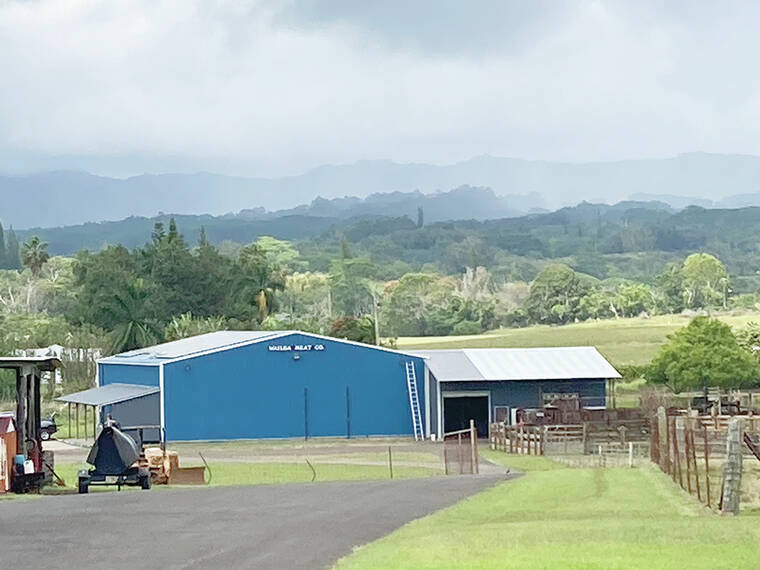WAILUA — International animal-welfare organization People for the Ethical Treatment of Animals wants the Kaua‘i county prosecutor to investigate a local slaughterhouse.
The bases for PETA’s request, made in an open letter to County Prosecuting Attorney Rebecca Like on Monday, are routine U.S. Department of Agriculture reports made from May through September 2021.
The notes, made by a federal food safety inspector, show four instances in which more than one stun attempt was needed to slaughter cattle, and two instances in which animal water buckets were empty.
The USDA Food Safety and Inspection Service has taken no humane-handling enforcement actions against Wailua Meat Company, also documented as Sanchez Slaughterhouse, in the past year.
“If there was an egregious situation, where we issue a Notice of Suspension and shut an establishment down, that’s all posted on our website,” a USDA-FSIS spokesperson, who could not address specific incidents, told The Garden Island. “That information is public, if there’s an incident that necessitates us to suspend an establishment for humane handling.”
But PETA is calling on Like “to review the matter and, as appropriate, file criminal cruelty-to-animals charges against those responsible.”
The slaughterhouse operators, when approached, declined to comment to The Garden Island.
“The Office of the Prosecuting Attorney has been in contact with a representative of PETA on these concerns,” Like said. “However, due to limited resources, we are unable to conduct an independent investigation on this case.”
This is not the first time PETA has called on county authorities to criminally investigate the Wailua Meat Company.
The nonprofit headquartered in Virginia called on then-County Prosecutor Justin Kollar to launch a probe at the slaughterhouse in 2020, for a similar incident involving a pig.
It can be routine to find an inspector at a slaughterhouse. By law, an FSIS inspector must be present at the time of slaughter operations, the USDA-FSIS spokesperson said.
FSIS personnel took no regulatory action following the first three recorded instances of ineffective stunning with firearms, citing operators’ “immediate and effective corrective actions.”
Operators used a new captive bolt device when the fourth incident occurred in September.
“We discussed that because the establishment was actively trying to correct the non-compliance, this event was not considered egregious,” the unnamed inspector reported (all names were redacted in the USDA document). “We discussed that this is only the second week the establishment has utilized the captive bolt device.”
PETA’s letter to Like, and an attached press release, highlighted the FSIS reports’ descriptions of animals’ distressed behavior during the failed stun attempts.
“If a person were to repeatedly shoot a dog or cat in the head, people would rightfully demand that charges be filed, and cows are also protected by law,” PETA Vice President of Evidence Analysis Dan Paden said in the release.
The PETA release concludes by noting the organization “opposes speciesism, a human-supremacist worldview.”






PETA- please go back to Virginia,,,, really …yes there will be some hardships at a slaughter house.. PETA is wanting too much here…
I respond to the 3/18/22 front page article as to PETA’s efforts to harass a local slaughterhouse through the Kauai Office of the Prosecuting attorney. These local slaughterhouses are very carefully monitored by the USDA. They provide a valuable service to our community. I know the Prosecutor’s Office has better things to do. PETA asserts that it opposes “speciesism, a human-supremacist worldview”. I oppose people with nothing better to do than claim everyone else is a “supremacist” of some kind while others are working their okole off to run their lives/businesses. Please get a real job, like farming.
Dope dealers, thieves and predators can all rest easy.
Prosecutor finds hard working food producers are the real criminals.
Unbelievable.